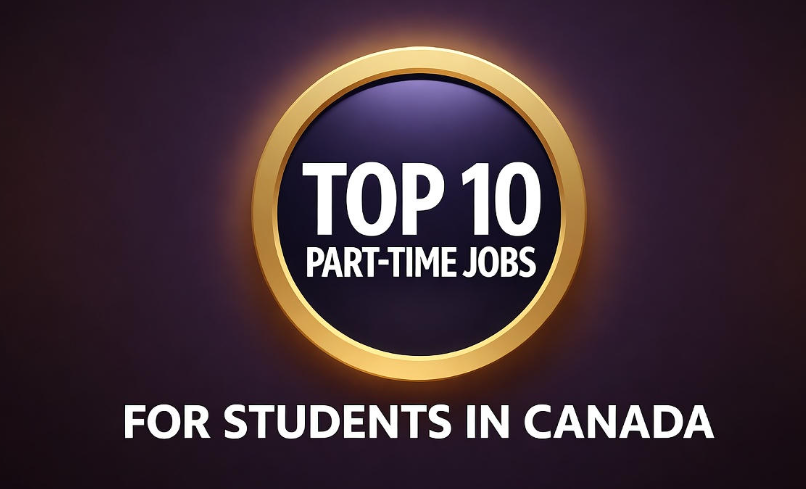Finding a job in Canada can be like a puzzle, especially if you’re new to the country or early in your career. The good news? Networking is your secret weapon. Where I am in Canada lots of the good jobs don’t even get posted online as they are filled through connections and referrals. This article will teach you exactly how to build those relationships, which can lead to incredible career opportunities all over the Great White North.
Why Networking Is So Important
Scene: Two people are vying for the same job. One applies using a browser-based portal to submit their resume. The other is referred to it by someone who already works there. Who would you believe gets the interview? You got it — whoever has the connection wins almost all of the time.
In Canada 70% of all jobs are never posted. This “hidden job market” only becomes available to you when you know the right people. Networking allows you to gain access to these opportunities long before anyone else has an idea that they even exist.
But networking isn’t just to find jobs. It is about connecting with people who can:
- Share insider info about companies with you
- Educate you on alternate careers
- Share advice when you struggle
- Introduce you to other nice people
- Nourish your career for years to come
Begin by Laying a Foundation: Have Something in Place First
There are basics to get in order before you reach out. Consider this as gearing up for a big game — you wouldn’t arrive to play without the necessary equipment.
Polish Your Online Presence
Your LinkedIn profile is your digital business card. Here’s what it needs:
Profile Photo: A strong, smiling headshot. No vacation snaps or group shots. Simply dress as you would for a job interview.
Headline: Don’t just write your job title. Make it interesting. Instead of “Student,” perhaps, “Marketing Student | Passionate About Digital Strategy | Seeking Summer Internship Opportunities”?
About section: Describe your 3-4 paragraphs brief history. Who are you? What do you care about? What type of work are you most excited about? Write as if you are talking to a friend, not in an essay for school.
Work experience: Include your jobs, volunteer work and school projects. For each one, tell us what you did in reality, and what you achieved. Numbers help! You can say “Managed social media accounts” which is fine, but you should instead boast about the fact that you: Grew Instagram following by 300% in 6 months.
Create Your Elevator Pitch
An elevator pitch is a 30-second introduction in which you tell people your name and what it is that you are looking for. You’ll be using it all the time when you’re networking.
Here’s a simple formula:
- Your name and current situation
- Your background or skills
- What you’re looking for
- Why you’re interested
Example: “Hi, I’m Sarah. I’ve just recently graduated from UBC with a computer science degree. I’m really interested in cybersecurity, and I want to find entry-level roles where I can help companies shore up data. I am a person who likes to solve puzzles, and so security work is attractive to me.”
Practice your pitch until it comes out naturally, not recited.
Where to Network in Canada
Now that you’re ready, it’s time to get out there and meet some people. Canada has a lot to offer in the way of networking—you just need to know where to look.
Professional Associations and Industry Groups
You will find an association for almost every profession in Canada. These organizations run events, mentorship programs and share job listings with their members.
| Industry | Example Organizations |
|---|---|
| Technology | Canadian Information Processing Society (CIPS), Women in Technology |
| Engineering | Engineers Canada, Professional Engineers Ontario (PEO) |
| Healthcare | Canadian Nurses Association, Canadian Medical Association |
| Business | Canadian Marketing Association, Human Resources Professionals Association |
| Trades | Canadian Apprenticeship Forum, province based trade associations |
And lots offer student memberships, often at a reduced cost. Join ones in your field and attend, don’t simply pay the fee and ignore them.
Networking Events and Meetups
Give the following three places a try to uncover networking events in your city:
Eventbrite: Look for “networking” or your industry and the name of your city. You’ll find everything from informal coffee chats to formal conferences.
Meetup.com: Good source for discovering regular monthly groups. Find professional groups — not just social ones.
LinkedIn Events: Organizations and groups list their events here. You can also check who else is going and make contact before the event.
Industry Conferences: These can be pricey, but a lot of them offer volunteer options. You work during the event (checking people in, assisting with set up) and receive free admission to all of the networking sessions.
Coffee Chats: The Canadian Way
In Canada, it’s the “coffee chat” that reigns supreme. This is where you ask someone to give you 20-30 minutes of their time to get to know about their path and advice. It’s less official than an interview and less uncomfortable than asking someone for a job.
Here’s how to set one up:
Find people to connect with: You can find folks who work in your target field or at a company of interest using LinkedIn. School alums are GOLD—alumni tend to go out of their way to support students who have walked the same campus.
Send a courtesy note: Brief and concise is the way to go. Bad example: “Can you help me get a job?” Good example: “Hello, Mark – I’m a recent grad who is intrigued by the idea of project management. I noticed you’ve been a PM at Shopify for 3 years. Could you spare 20 minutes for a coffee chat? I would be very interested to hear about your transition into tech project management.”
Make it easy for them: Offer a couple of times you’re free, or inquire when suits them. Propose a meeting at or near their office, if possible, or do a video call.
Be prepared: Research the individual in advance. Prepare 5-7 questions. Concentrate on the learning, not in asking for a job straight-up.
Follow up correctly: Send a thank-you email within 24 hours. If they said anything particular (a book suggestion or someone else to talk to for example) refer back to it.
-
Searching for full support? Explore fully funded scholarships in Canada for 2025 — Discover here
Online Networking That Works
Not all networking happens face-to-face. Indeed, some of the strongest relationships do begin online in Canada’s far-spread cities and remote places.

Master LinkedIn Like a Pro
LinkedIn is the #1 professional networking site in Canada. Here’s how it can be used to useful effect:
Interact with content every day: Take 15 minutes a day to like, comment on and share posts from those within your industry. The idea is, that when you comment on posts (for real, not just “Great post!”), you get noticed.
Share your own content: Write once or twice a week about what you’re learning, articles that were interesting to you or projects you’re working on. You don’t need to be an expert — you only have to demonstrate that you are engaged and learning.
Become Member of LinkedIn Groups: Look for groups that belong to your industry or in your location. There are groups called “Toronto Young Professionals” and “Vancouver Tech Community.” Join discussions and reply to questions when you can.
Be careful with the “Open to Work” feature: This alerts recruiters you’re on the job hunt. But if you have a job and don’t want your employer to see that you’re seeking something new, you can make it visible only to recruiters — not everyone.
Strategically connect: Every time you send a connection request, include a personal note. “I’d like to add you to my professional network” is just lazy. Instead: “Hi Jennifer, great piece you wrote on sustainable architecture in Canadian cities. I’m a Ryerson architecture student and would love to connect.”
Virtual Networking Events
COVID-19 has brought virtual networking to the mainstream in Canada. And don’t miss these (just because they’re online).
Benefits of virtual events:
- You can attend events anywhere in Canada and not incur any travel costs
- It’s not as daunting as stepping into a roomful of strangers
- You can leave notes open on your screen
- Helps avoid those “what do I do with my hands” moments
How to succeed at virtual events:
- Turn your camera on
- Use a clean, well-lit background
- Make sure your LinkedIn profile is prepared to share in the chat
- Breakout rooms are where it’s at
- Follow up—It’s really easy to put all of these people in the back of your mind but for those people that it was meant to be, you’ll definitely want to reach out! Follow everyone you met and talked with on LinkedIn within 2 days.
Twitter and Other Platforms
But as important as LinkedIn is, so are other social networks:
Twitter: Lots of Canadian professionals and companies are hanging out here. Connect with others in your industry, respond to their tweets and share great content. Use hashtags such as #CdnJobs, #TorontoTech or those specific to your industry.
Reddit: Many Canadian city subreddits (such as r/Toronto or r/Vancouver) feature career advice threads and job postings. Subreddits for particular industries may also be useful.
Instagram: Instagram is big in some industries (fashion, design, food and entertainment). Create a professional account and showcase your work.
Finding a Job: Where to Look for Openings
Now that you’re constructing your network, what about actually finding job openings?
Online Job Boards
Begin with these Canadian job sites:
| Job Board | Best For |
|---|---|
| Indeed.ca | All jobs across all sectors |
| LinkedIn Jobs | Professional and tech positions |
| Workopolis | Multiple sectors, with a focus on Ontario |
| Monster.ca | Entry through mid-level jobs |
| Eluta.ca | Jobs from Company Websites Directly |
| CharityVillage | Non-profit jobs |
| SimplyHired | Pulls in job listings from many sources |
Pro tip: Create email alerts for your search terms. Apply for a job within 24-48 hours of it posting — after that, there are too many applications for employers to get through.
Government Job Resources
The Canadian Government offers free tools for job searching. The following are some of the free tools offered by the Canadian government:
Job Bank (jobbank.gc.ca): Canada’s official job board. It is totally free and has posts from jobs all over the country. You can also find labor market information related to various careers.
Youth Employment Services: If you’re under 30, see if your province has youth employment programs. They frequently provide job databases, employment counseling and wage subsidies for employers who hire you.
Newcomer Services: If you’re an immigrant, agencies like ACCES Employment or MOSAIC in Vancouver provide job search help tailored for newcomers. For more information about settlement services across Canada, visit the official government resources.
Company Websites Directly
Don’t overlook this strategy. Get a list of 20–30 companies you’d love to work at. Check their career pages weekly. A lot of companies post to their own sites before anywhere else.
Bonus strategy: Follow these companies on LinkedIn and enable notifications. You’ll know when they post jobs, share a piece of content or when members of your network work there.
Recruitment Agencies
Recruiters can be a valuable resource, particularly in some industries such as IT, healthcare, engineering and finance. They work for the employer, not you, but a good agent wants to place you because that is how they make money.
Tips for working with recruiters:
- Be polite and professional — they’re assessing you from day one
- Be realistic about your abilities and experience
- You will want to inquire about company and position in advance of the interview
- Develop relations with not one but many recruiters, just ensure that they know of each other to avoid confusion
- Check in regularly, but not annoyingly (once a week is good)
Using Informational Interviews to Their Full Potential
We’ve brought up coffee chats earlier but they’re so crucial let’s give them a section of their own. Informational interviews are one of the most effective networking techniques.
Questions to Ask
Write questions that indicate real interest:
About their career path:
- How did you end up in this field?
- What is a typical day in your life like?
- What do you find most rewarding about your job?
- What do people find harder than they think?
About skills and qualifications:
- Which of your skills have been most helpful in your career?
- If you started out today, what would be the first thing that you’d want to learn?
- Are there any certificates or courses of which you are a fan?
About the industry:
- How is the field evolving in Canada?
- What are some trends that new entrants to this field should know about?
- What companies are doing interesting work in this space in Canada?
About opportunities:
- How do people enter this field for the most part?
- Are there any alternative routes into this job?
- Who else do you think I should talk to?
That last one is key — it also leads to more connections.
What Not to Do
Don’t:
- Ask directly for a job (they will offer to help if they can)
- Exceed the time by more than agreed without inquiring if you are still needed
- Neglect to pick up even a basic amount of background information about them
- Fail to send a thank-you note
- Ghost them after they assist you
Networking for Newcomers to Canada
If you’ve recently moved to Canada, networking may seem especially intimidating. The good news? Canadians are nice people and a lot of official places help newcomers.
Settlement and Newcomer Services
In every province there are free services for immigrants and newcomers. These organizations offer:
- Job search workshops
- Resume help (examples of Canadian resumes also included!)
- Networking events for newcomers
- Mentoring you with established professionals
- Language support if you don’t speak English or French as a first language
Look into ACCES Employment, Skills for Change or TRIEC in Ontario. In BC, research MOSAIC, ISSofBC or DIVERSEcity. Every province has similar organizations.
Credential Recognition and Bridging Programs
You may need to have your credentials recognized in Canada if they come from abroad. This can be facilitated by professional bodies.
Bridging programs open the doors to Canadian workplaces for internationally educated professionals. They often include:
- Canadian workplace culture training
- Technical skills updating
- Internships or practicum placements
- Networking opportunities
Leverage Your Cultural Background
Your time abroad is an asset, not a handicap. Indeed, many Canadian companies are global and require talent who understand other cultures and markets. Emphasize this in your networking dialogue.
Networking as an Introvert
Feel like networking is only for the super gregarious? Think again. Some of the best networkers are actually introverts who utilize their strengths.
Introvert-Friendly Strategies
Direct conversations: Forget big networking events, and concentrate on having coffee chats. You’re likely stronger in meaningful conversation than chitchat, anyway.
Online networking: Make thoughtful comments and send LinkedIn messages to connect with others. You can pause before you speak up.
Quality, not quantity: Rather than trying to connect with 100 people, work on fostering 10 real relationships.
Preparation: Study up on the people you meet. Come with specific questions. Having a plan reduces anxiety.
Follow up in writing: Email good follow-up notes (which are more about recognizing an insight or idea than just an acknowledgment of a meeting). This is often where introverts excel.
Be a volunteer at events: This way you have an excuse to talk to everyone without feeling self conscious for the sake of small talk.
Bring a buddy: Attend events with a colleague or classmate. You can meet each other’s new friends.
Student and Recent Graduate Strategies
If you’re in school or recently graduated, you have special networking powers.
Campus Resources
These are the great things about your school:
Career Services: Students generally don’t take enough advantage of these. Career centers provide networking events, employer information sessions and access to alumni databases.
Professor Office Hours: Your professors know people in industry. Ask them about their research, career trajectory and who they know in industry.
Alumni Networks: Schools have lists of grads who want to help current students. Use them! Alums tend to be loyal to their school and desire to assist.
Student Organizations: Participate in business clubs related to your major. They frequently invite speakers and host company visits.
Co-op and Internship Programs: They aren’t just about the experience of working itself — they’re networking gold. Each supervisor or co-worker could be a future reference or resource.
Student Discounts and Programs
Take advantage of:
- Free or reduced price student membership in professional organizations
- Student registration rates for conferences and workshops
- LinkedIn Premium for Students, free for one year
- Professional clubs for students to join
Follow-Up: The Most Crucial Step
This is where most people fail at networking. They run into someone, have a great conversation — and then never follow up. Don’t be that person.
The 24-Hour Rule
Twenty-four hours after you meet someone, or have a coffee chat with them, send them a follow-up email.
What to include:
- Thank them for their time
- Reference part of your conversation
- If they said they’d help with something, thank them
- If they mentioned a resource or connection, make a note to follow up: “I’m definitely going to take your suggestion and look into it!”
- Keep it brief—3-4 sentences maximum
Example:
“Hi David,
Thank you very much for speaking with me yesterday about your career in environmental consulting. Your suggestion to get certified as a GIS professional was really helpful, I will look into the classes at BCIT that you mentioned.
I will for sure contact Maria Santos as you suggested. Thanks again for your generosity!
Best, Jamie”
Stay in Touch
A good network is not about meeting as many people as you can and collecting business cards, but rather, staying connected with some of those people over time.
Check in: Reach out to key people every 3 to 6 months. Share an article they might enjoy, congratulate them on a new job or say hello.
Add value: Networking is an exchange. If you happen to see a job posting that you think would be of interest, send it. If you come across something related to their work, send it.
Update them on your progress: When something good happens (you landed a job, earned a certification, completed a project), share it with your network. People who have helped you want to know that their advice was effective.

Common Networking Mistakes to Avoid
Learn from these common errors:
Being too transactional: People are not a job vending machine! Build genuine relationships.
Networking only when you want something: Begin networking before you need a job, not when you’re desperate in your job search.
Making the conversation about you: Ask questions and listen. Networking is for listening, not talking.
Failing to do your homework: Investigate people and companies before you contact them. Generic messages get ignored.
Neglecting to say thank you: Always show appreciation when someone lends a hand.
Quitting too soon: Networking is not overnight. Not after one event, or one coffee chat.
Ignoring your current network: Your friends, family, former co-workers and classmates are your initial network. Explain to them what you need.
Measuring Your Networking Success
How do you know your networking is working? Track these things:
- Monthly new connections made
- Coffee chats or informational interviews done
- Events attended
- LinkedIn profile views
- Messages received from your network
- Referrals or introductions you’ve gotten
- Job news via contacts
Don’t expect immediate results. Networking is planting seeds — it’s a long time before everything blooms.
Building Your Personal Brand
As you network, you’ll begin to be associated with a set of traits. This is your personal brand. You want to be famous in a good way.
Decide on your specific focus: What is it you want to be known for? Problem-solving? Creativity? Technical expertise? Leadership? You just need to choose two or three qualities and ensure that your online life, as well as the conversation about you, reflect this.
Be consistent: What you describe on LinkedIn, Twitter and in person should match. Don’t be a different person on one platform than you are somewhere else.
Share knowledge: Learn something that you didn’t know yesterday? Post on LinkedIn or answer questions in one of your online groups, or present at a meeting of your student club.
Be dependable: If you say that you are going to do something, do it. Not doing so makes you look bad.
The Long Game: Lifetime Networking
The best networkers think long-term. They are developing relationships that will last their entire careers.
Help others: As you become experienced, help other people who are in the place you used to be. Mentor students, respond to questions online, make introductions.
Stay curious: Ask people about their work, even when you’re not on the job hunt. When you learn about different careers, you become more interesting and more knowledgeable.
Be real: Don’t try to be someone you’re not. In the end, being real is a more effective networking technique than any other.
Show up: It’s consistency, not intensity that is key. It’s better to go once a month to one networking event for years than 10 in one month followed by nothing.
Frequently Asked Questions
How many networking events should I go to in a month?
Quality beats quantity. For most people, going to 1-2 events and having 2-3 coffee chats per month is more than enough. For those even more active in the job market you may want to bump this up to 3-4 events per month. Don’t forget, you’ll also want time to check back in with everyone you’re meeting.
What if I don’t know anybody in my profession?
Everyone starts somewhere. Start with your school’s alumni network, get involved in industry-specific professional organizations and attend industry-specific events. Search LinkedIn for people and ask them for informational interviews. It will take a few months of consistent effort, and then you’ll start meeting people.
Do I have to connect with everyone I meet?
Connect with people you’ve actually spoken to in the flesh, or online. Stop mass connecting to strangers. Whenever you add a connection, include a personalized note (keeping in mind where you met).
How do I network if I live in a small town in Canada?
Virtual networking is your friend. Participate in online events, join national professional organizations and network on LinkedIn. You can also occasionally travel to bigger cities for large industry conferences. With remote work now more widely accepted by employers, your proximity matters less than it did in the past.
Can I ask someone I just met for a job referral?
No. Build the relationship first. After a few conversations over several months, if they offhandedly say that there’s a role available at their company that you’re interested in, then you might ask whether they’d be open to referring you. Let relationships develop naturally.
What do I do if someone does not reply to my networking message?
Don’t take it personally. People are busy. If you don’t get a response within a week, it would be appropriate to send one polite follow-up. If still no response, move on. Spend your energy on people who do respond.
How do I network if I have social anxiety?
Begin by having more intimate, one-on-one coffee chats rather than full-blown events. Leverage online networking sites – you can draft a more careful response. See a counselor to help you develop strategies. And stay mindful: Lots of successful networkers experience anxiety — you can too.
Do I want to network with my competition?
Absolutely! Colleagues in your field are potential collaborators, not just competitors. They know what you’re up against, might hear about job openings you don’t and who knows? — they could be your next colleague someday. The world of work is smaller than you thought.
Your Action Plan: Start Today
Networking can be daunting, but you don’t have to try everything at once. Here’s a basic plan to get you started this week:
Day 1–2: Update your LinkedIn profile. Upload a professional photo, include a strong headline and fill the experience section with your achievements.
Day 3-4: Join a professional association or LinkedIn group in your field. Find one upcoming networking event and register for it.
Day 5: List out 10 people who you would like to have coffee chats with. These might be alums, employees of businesses you respect or professionals in positions you’re interested in.
Day 6: Send 5 connection requests to some people on your list with personalized messages.
Day 7: Post one post on LinkedIn about something you are learning or working on. Comment with care on three posts from people in your network.
Show up to that networking event next week you signed up for. Ask for a coffee chat from someone you asked to connect with. Build from there.
Final Thoughts
Networking in Canada is not about collecting business cards or trying to meet people at fancy events. It’s about making sincere connections with others who have the potential to help you professionally — and can be helped by you, too.
The job market is tough, but networking gives you an edge. When everyone else is blindly applying to jobs online, you’ll hear about possibilities in advance, gain insight into companies and have advocates who can vouch for your abilities.
Start small. Be genuine. Follow up consistently. Help others when you can. With time, you’ll establish a powerful professional network that gives access and opportunity throughout your career.
The best time to begin networking was yesterday. The next best is today. Choose one thing discussed in this article, and make it happen today. You’ll thank yourself in the future.
The thing is, every successful professional in Canada was once exactly where you are now – with no connections, and no clue about how to even start. They got there one small step at a time. You can too. Good luck!




